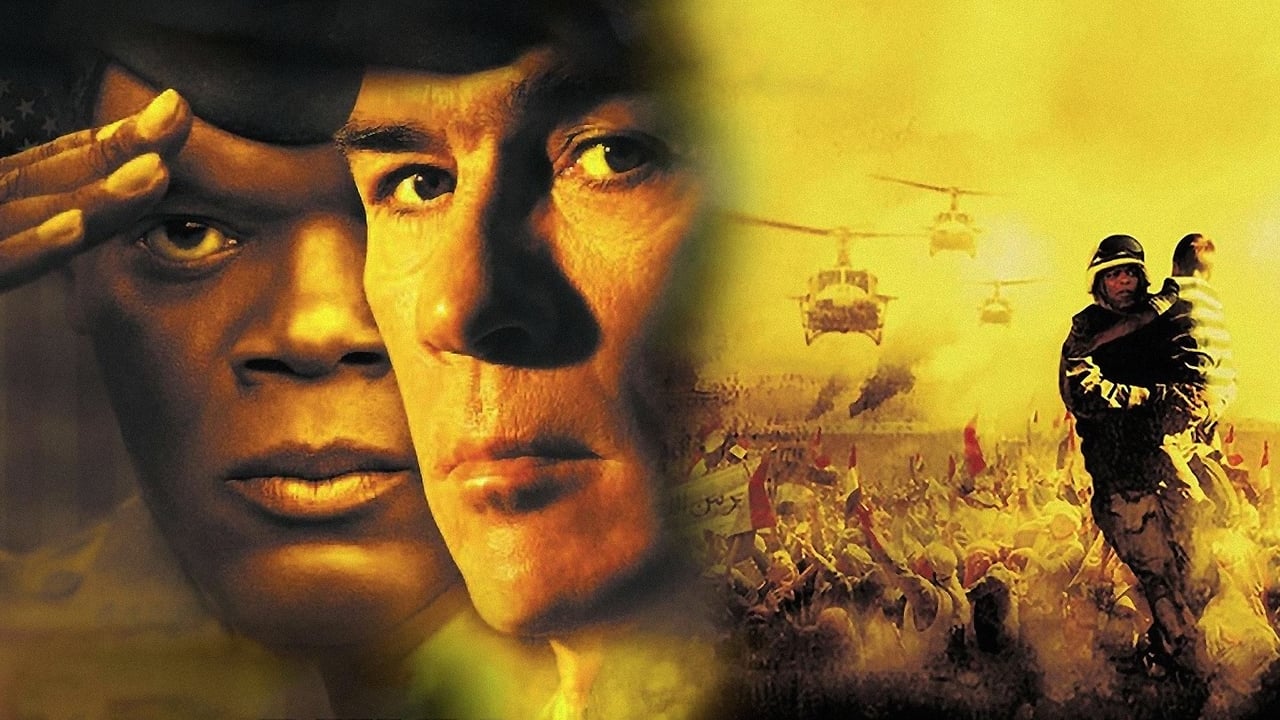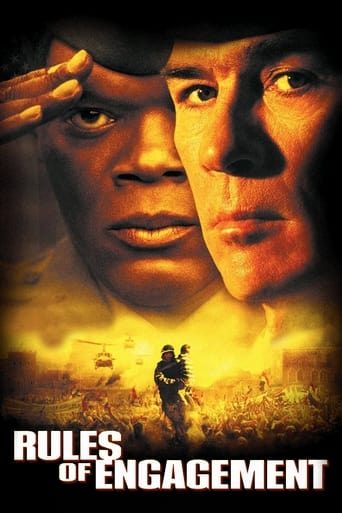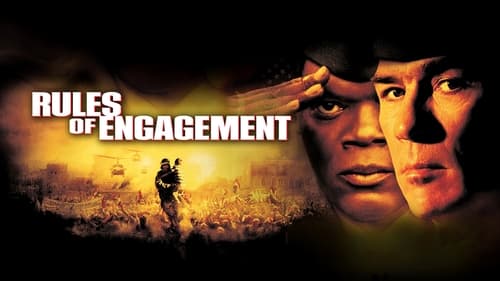



i know i wasted 90 mins of my life.
All of these films share one commonality, that being a kind of emotional center that humanizes a cast of monsters.
View MoreActress is magnificent and exudes a hypnotic screen presence in this affecting drama.
View MoreAn old-fashioned movie made with new-fashioned finesse.
View MoreThis movie is very entertaining and becomes more relevant as the years pass. A Marine is sent to retrieve an ambassador and his family from an embassy after a supposedly peaceful protest is supposedly hijacked by snipers. The marines evacuate the ambassador and then fire on the "peaceful" protesters after several marines are killed. Government officials then lie and destroy evidence to blame the Colonel in charge. This movie was made over a decade before Benghazi. Much of the drama takes place in the courtroom where the Colonel hires an old friend who he served with to defend him. The government attempts to throw the full weight of their corruption to throw the Colonel in prison. The Hollywood ending unfortunately does not correspond to what normally happens in real life.
View MoreOften, in Hollywood films, the military and its interventions overseas are slandered or shown in a negative light: it is common, today, for almost every war film to carry anti-military messages, for its soldiers to start questioning their actions and ideals and whether they are doing something good (heck, even WWII films seem to do it). That is not taking into consideration the many films involving government/military cover-ups, or flat-out abuses of power. Only action films tend to show pro-military stances today, and even then accompanied by some of the aforementioned contradictory messages.'A Few Good Men', a very good military court drama, is an example of my point. A military lawyer investigating a try at military cover-up, involving a severe (but implicitly 'common') military abuse of power? It pretty personifies what I mean about anti-military stances in today's films.'Rules of Engagement' is surprising in that it is the exact opposite of 'A Few Good Men'. A military officer is being charged for ordering fire on a group of 'civilians' during the evacuation of a Middle-Eastern US Embassy, and it is a military officer who must defend him as the government wishes to 'crucify' him to appease the world media.This is far from the kind of film you usually see today. A film that does not try to convey the idea that 'terrorism comes from the US's past actions!', like most 'liberal' directors/actors prefer to do, or that the military is just a bloodlusted organization that only wants an excuse to drop bombs everywhere. It is still the typical 'good vs evil' of Hollywood, but in a way it rarely employs.When you are a soldier, or police officer, or in any law enforcement position; when you are in the line of action, with your life in danger (of course, there is always a way to try and make such a situation subjective, which a character in the film tries to do by the way), THEN you will understand and comprehend one's actions, THEN you might criticize such actions. Criticizing what you don't know about is easy, not to say cowardly (another character says something similar to a critic at one point).Anyway, few people would agree to make a film like this. William Friedkin, a very competent and not usually biased director, is to be praised for his courage; as are, surprisingly, Samuel L. Jackson and Tommy Lee Jones, who tackle their roles with conviction and a good deal of quality. Both usually support the other side of the issue, so the fact they both agreed to work here and did it well is impressive. Other highlights are Bruce Greenwood and Guy Pearce.The action scenes in the beginning, when Samuel L. Jackson's character leads the Middle-Eastern operation, are good but a bit clumsy. Tommy Lee Jones steals the show for most of the film, and the courtroom confrontations with Guy Pearce are very good. However, the film more than indulges in the usual underdog, 'justice looks impossible but wins in the last second!' Hollywood cliché.This is not racist or anti-Arab at all; people are so used to the watered-down anti-terrorism Hollywood usually offers, when they see a movie being more incisive in its anti-terrorism stance they immediately cry foul (or, in this case, propaganda). It is commendable that they had the courage to make a film like this, and that they managed to make it entertaining as well.
View MoreI cannot say I fully comprehend precisely what the writers were thinking... well, in fact it is just plain puzzling. They wanted to write a courtroom drama but when it came time to actually think of a point for the court case they apparently just drew a blank and decided to massacre a load of civilians for no conceivable reason.The scene is just... ridiculous. So ridiculous I simply gave up watching. Samuel L Jackson (why is it every character he plays is called 'Samuel L Jackson'?) clearly sees the gunmen are on the roof when they fly in. The marines decide the best way of dealing with this situation is to run about on top of the ramparts and give the enemy a nice little game of duck hunt... rather than say, returning fire. Even if they had some standing order not to fire I think this rather gets superseded when half your men have just been shot...Then when it comes time to engage Sam decides the best thing to do is to fire into a crowd of people throwing rocks as opposed to actually shooting the people shooting him... just... why? It seems there are genuinely a hundred other ways they could have had their civilian massacre plot short of just having the guy order his troops to pointless massacre them. He could have called in some inaccurate fire on a position, a building could have collapsed into the crowd from taking suppressive fire... even if he had just slipped whilst trying to throw a grenade it would have been more plausible. Ultimately I would have carried on watching it if this scene made the slightest bit of sense. If he had ordered his marines to fire on the snipers on the rooftops and had some of the women and children that were visibly clustered amongst them take some hits they still could have racked up the inordinate body count they so craved. Perhaps we could even see one or two rookie marines shoot into the crowd after mistaking a rock for incoming fire only for Sam to order them to stop. The prosecution would then be that of a looking for a scapegoat to avoid an international incident and the audience would be on the side of the war veteran defendant.I gave up before the court case even started because frankly it would have been more plausible if they were trying to sue a unicorn from space for causing World War Three...I am annoyed that I watched the first half hour of preamble in what looked to be a good film with a good cast only to find that the writer is a goddamn retard.
View More"Rules of Engagement" from 2000 is a fairly derivative film. Directed by William Friedkin, it's the story of two men, Colonel Terry Childers (Samuel L. Jackson), a 30-year Marine veteran and decorated officer; and Colonel Hayes Hodges (Tommy Lee Jones), now an attorney, a man with whom he fought and whose life he saved in Vietnam and has retired.Childers is sent on a rescue mission in Yemen that goes awry when the protesting crowd outside the embassy starts shooting at the Marines. Childers, who already has men down, orders his soldiers to fire into the crowd. He is able to evacuate the embassy but finds himself in trouble due to the fact that no one believes the protesters had weapons. He is put on trial and asks Hodges to defend him. Hodges doesn't feel he's a good enough attorney, but he agrees to take the case.There is a tape of what happened, but the head of security (Bruce Greenwood) who doesn't want the United States to take the rap for killing civilians and would rather have it fall on a soldier, burns it. And Childers gets no support from the Ambassador (Ben Kingsley) or his wife (Anne Archer), and the attorney on the other side (Guy Pearce) is out for blood.We've seen this film in various guises before, and the good versus evil is typical Hollywood. The acting is good but I have difficulty understanding the casting of Ben Kingsley, a great Oscar-winning actor, who is completely wasted in what is not even really a supporting role. Anne Archer plays his wife. The two have a small son and have been married for ten years. May I suggest that though it's entirely feasible that Archer at 43 had a child, the casting seems a little off. Often, when directors want a certain actor, the agency representing them agrees on the condition that the director take other people on his roster. I suspect this is what happened here; the casting is not quite right for these distinguished actors.Tommy Lee Jones in particular is good as Hodges, though he has the showier role. Samuel Jackson is always very good and gives a strong performance as well, but there's something very stereotypical about both parts. Bruce Greenwood at least is interesting casting - he seems pretty mild-mannered as the Head of Security, but there's a treachery underneath.All in all, this is an okay film, one where you know how it's going to end and basically what's going to happen while it's going on. We see two stars who have done their roles before in other circumstances. So in the end, while it has its moments, it's somewhat routine. One of those if you've seen one, you've seen them all type films.
View More